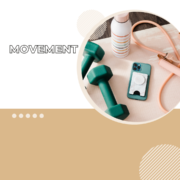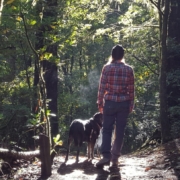Thoughts for someone recently diagnosed
A couple of things before we dive in. These are just my thoughts. I don’t like to think I give advice. “Advice” insinuates I know what the fack I am talking about and I feel like I am winging it most of the time.
Even if you don’t have Lyme you can still read on. A) It could help in the event someone close to you finds out they have Lyme. B) The thoughts down below can also be transposed to other health conditions. C) But most importantly, there are some good things for anyone to practice! What better time to support your body than before you get some shitty diagnosis?!?
Before I get into receiving a Lyme diagnosis, let’s back up…. How do you know if you have Lyme? Please, from the bottom of my heart, go to a Lyme literate practitioner. This is no offense to conventional medicine. However, if you want to get to the root, and want a more accurate diagnosis when it comes to Lyme you want to go to someone that specializes in it. Conventional medicine is years behind on the Lyme sitch. All the way dow to their testing. Their testing may only catch active/acute cases. It will not usually catch chronic cases. Their testing is something like less than 35% sensitive. A Lyme literate practitioner will use a test that is more sensitive (upwards of 95% sensitive).
Look at me for example. In a million years, they would have never tested me for it. They would have prescribed me anti-deppresants and anti-anxiety drugs and told me to suck it up and nothing is wrong, it’s in my head. I say this because I caught glimpses of this while I was trying to figure out what was going on with me, and I see it happening all the time with people around me.
A Lyme literate practitioner will most likely listen to your symptoms and hear you, validating your situation. It took only 15 minutes chatting with my practitioner for him to ask about Lyme. Because he listened, he heard me, he was open minded, and he understood how Lyme works. Sometimes a Lyme practitioner might not even need to test you for it. They might just move forward and treat you for it, depending on your situation. Because they understand how prevalent and common Lyme actually is. Conventional medicine is still hung up on the red bullseye from a tick bit. We know this to actually happen in less than 25% of Lyme cases. There are other ways to get Lyme than just an infected tick bite (passed on by mother, mosquitos, spiders, etc).
Okay, so you have received a diagnoses and are wondering what to do and where to go from here. First of all, Buckle up! It’s going to be a wild ride and you are going to learn so much about yourself!!! Below are some notes I saved. They are in no particular order. And I really did try to condense the list, I promise.
1. Don’t panic! If I can get weird here and say to “welcome” the diagnosis. Most likely you have been struggling for a while, with no answers. And now you have an answer! Relish in that.
2. Learn to love your body. Those of us with chronic [insert whatever chronic thing you are dealing with] can lose touch with our bodies. It can be easy to blame our bodies for “failing” us. But your body is not designed to fail you. Your body is doing its absolute best with what it was given and what it has gone through and been exposed to in its life. Your body is sending you signals that something is array and now you get to listen to it and work with it to create homeostasis. This one was really difficult for me. It can take a while to get on board. But it’s important to love and respect your body as a vessel for carrying you through this life.
3. Get comfortable talking about sweat and poop. A LOT! You will be opening up detox pathways like a mofo! What this means is you will be sweating. If you are someone that cannot sweat, then you cannot detox – you will work on this. (Excessive sweating is a different story, I think. Again, I am not an expert). These are two huge ways in which toxins leave your body so you will be talking a shit load (see what I did there ;-)) about them.
4. Get Back to Nature. Find ways to get back to your roots as a human. Back to basics.
5. Mental and emotional health should absolutely be a focus. Not only is it emotionally/mentally draining to receive a diagnosis, there is a lot of research coming out that is linking undealt with childhood trauma, etc. to chronic health conditions. We all hold trauma, whether it’s our own or it was passed on to us by prior generations. No matter how great our parents were, nobody leaves childhood unscathed. Life is hard. Seeking a life coach, therapist, etc is pertinent to healing.
6. If you have a significant other, bring them along for the adventure. They can join for practitioner visits, etc. These visits can be so overwhelming and having a separate set of ears at the meetings is extremely helpful. They can help take notes, keep track of things, and interpret the appointments with you. It also helps to build the bond between you two. Chronic illnesses can drop wedges in relationships very quickly. A great way to keep bonded is going at it as a team.
7. Trust your intuition. You will try many many many healing modalities. There are a lot of things that work for people. But they won’t all work for you and it’s okay. Choose what resonates with you. And down the road you can pick up some of the things that weren’t resonating with you at one point. It’s a very fluid process. Tuning in to your intuition is your way of letting your body and your soul guide you along on this healing adventure.
8. Most importantly, get excited about learning so much about yourself and your body. You will be more in tune with yourself than most people on Earth. It truly is a beautiful thing.
9. Don’t over-research. It’s easy to get caught in this trap (believe me, I did this for years). You can totally do some research but let yourself “just be” most of the time. You cannot heal when you are stuck in your analytical mindset. Let the walls down. Especially if you are working with a trusted Lyme practitioner. Trust in them, trust in the process and trust in your body/intuition. Lean in
10. Have patience. You aren’t going to heal in a day, a month, or even a year. This all takes time.
11. Journal. From the beginning. You can write about the process, your thoughts, emotions, physical symptoms. Add things like love and gratitude to your daily journal. It will be a trip to go back and see where you’ve come from. You might even start realizing how much you are healing by reading old notes. The healing is usually so small that you forget about things like: “my fingers used to hurt when using my turn signal in my car.” When you read back on that you realize how much progress you have made.
12. Most importantly, HAVE FUN. Whatever makes your heart happy or puts a smile on your face, do that! As much as possible. Go to see stand up comedy, crank your music and dance silly at home (or in public!), hike with the family, hike by yourself, create artwork, hang out with childhood friends, watch funny movies/shows, buy a drum set, start kickboxing classes. Laughter is healing. Having fun helps us get out of our funk of being so dang serious all the time.
I am sure I am missing some good ones. But I hope at least a couple of these resonate with you. This list isn’t all inclusive but I tried to keep it somewhat concise. And I bet if I wrote the list again in 6 months it would change. If you are working with a practitioner that isn’t supporting/encouraging these types of things, you might want to consider getting a different practitioner. Lyme should be treated at all levels and from all angles.
Sending love and encouragement to you and your loved ones. May you find ways to keep the adventure alive while on this journey!!
Happy Healing,
EZ E









